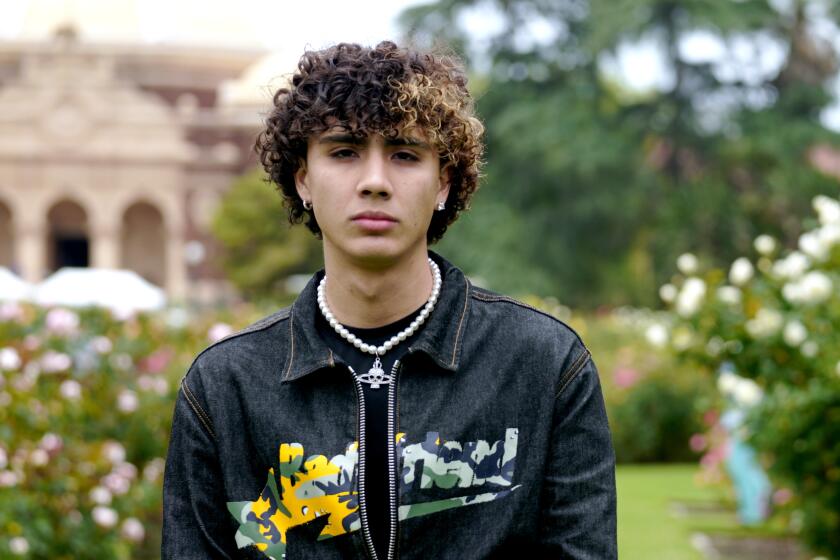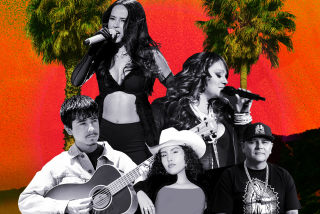
Peso Pluma paced across the stage to the sounds of uproarious applause. His set was coming to a close, but there was something he needed to get off his chest.
“Every single one of us,” he told the crowd in Spanish, gesturing to his band behind him, “continue to make music for you all. And as long as I am alive, my team and I will continue to rock each stage, no matter what happens.”
The 3,000 attendees — many of whom had waited hours in line to see the Mexican singer on Wednesday — cheered in response at Austin City Limits at the Moody Theater, which hosted Rolling Stone’s South by Southwest Future of Music showcase.
“We will keep representing our Mexican flag wherever we can. To social media and the press, keep talking,” he continued, adding in English: “Keep talking motherf—.”
The 24-year-old then used a Spanish expletive to refer to his lack of care for external commentary and opinions.
“Que viva los corridos,” he said in Spanish: “Long live the corridos.”
The speech came after Pluma decried “all the controversy,” without referring to a particular incident. The musician topped off his performance with “Lady Gaga,” a track about living a lavish lifestyle. He then embraced his band onstage, taking off as the crowd chanted for an encore.
The past year has seen Pluma’s star power exponentially grow since the release of the ballad “Ella Baila Sola,” with Eslabon Armado. He has also released an album, “Genesis,” and has more new music in the works.
The last months, however, have also been met with controversies.
In September, the Guadalajara-born musica Mexicana artist canceled a concert in Tijuana after receiving death threats by a drug cartel. A January performance in Chile was lambasted by Chilean government officials and public figures, who condemned Pluma’s alleged glorification of narco culture.
The next month, Nicki Nicole, the Argentinian singer Pluma had introduced as his girlfriend, shared a post alluding to their breakup over infidelity rumors, according to People.
Nonetheless, Pluma, born Hassan Emilio Kabande Laija, has marched on, reaching milestone after milestone, such as being the first musica Mexicana artist to grace the cover of Rolling Stone.
Regional Mexican music, from mariachi and banda to Norteño and son jarocho, is being taken up and transformed by young artists from places like South L.A., Texas, Arizona and the Inland Empire.
“I’m grateful to my people and to fans who supported me because they’re the ones that have put us on the charts and everything else,” he told the magazine. “But I don’t see this as a competition or about position or about places we’ve reached. I think it’s not just Peso Pluma that reached Number One — it’s Mexican music that made this happen.”
Regional Mexican music has surged in popularity with younger artists bringing their own touches to the genre, which has also taken off on TikTok. Last year, the genre grew 60% in audio streams, according to the Associated Press.
On Wednesday, Pluma made time to meet with a fan who had stood in line since 4 a.m. to see him hit the stage in Austin. Backstage, he autographed a photo and took photos, with the fan noting that he was headed to Chicago to see him perform next.
“From here on out, you won’t pay for any ticket,” Pluma told him in footage posted to social media. “Wherever you want to go, you’ll have a ticket there.”
Artists such as Pluma, who performed that night along with Young Miko, Kevin Kaarl, J Noa and Pink Pablo, are emblematic of the cultural zeitgeist right now, according to Rolling Stone Chief Executive Gus Wenner.
“Ultimately, that’s the goal — to put people on stage that actually resonate with our generation today,” he said.
More to Read
The Latinx experience chronicled
Get the Latinx Files newsletter for stories that capture the multitudes within our communities.
You may occasionally receive promotional content from the Los Angeles Times.








